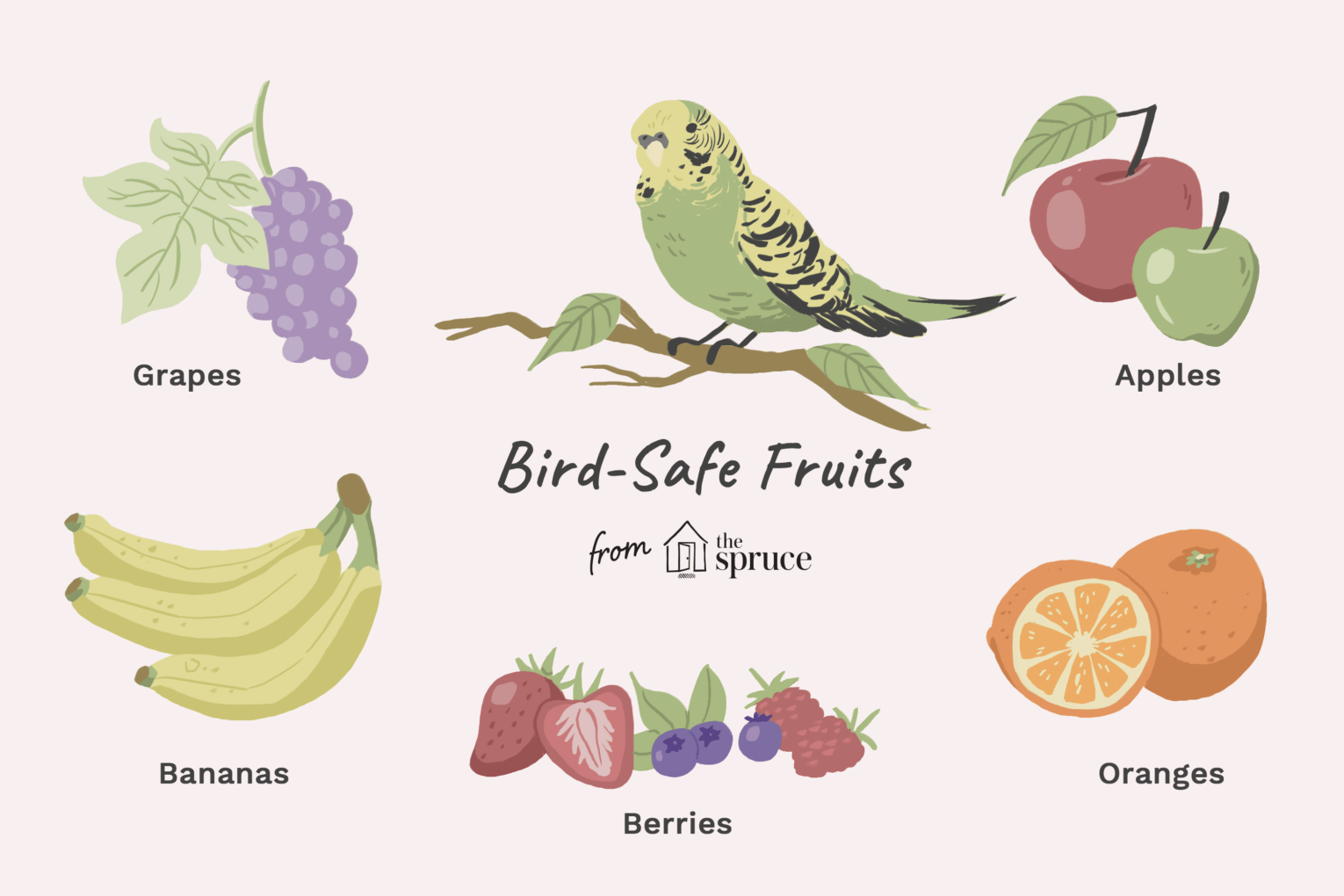
Parakeets, like many other pet birds, benefit from a diet that includes a variety of fresh fruits and vegetables. If you’re wondering whether grapes are a safe and healthy treat for your parakeet, the answer is yes—parakeets can eat grapes. Grapes are packed with beneficial nutrients and can be a great addition to your bird’s diet when given in moderation. In this guide, we’ll explore the benefits of feeding grapes to your parakeet, how to do it safely, and why portion control is essential.
Nutritional Benefits of Grapes for Parakeets
Grapes are a good source of several essential nutrients that can benefit your parakeet’s overall health. These small, juicy fruits are rich in vitamins and minerals, including:
In addition to these nutrients, grapes also contain natural sugars that provide a quick energy boost, which can be useful for active birds like parakeets.
Feeding Grapes to Your Parakeet: Moderation is Key
While grapes can be a healthy treat, it’s important to feed them to your parakeet in moderation. Grapes are high in natural sugars, and too much sugar can lead to obesity, digestive issues, or other health problems in birds. To prevent overconsumption, grapes should only be offered as an occasional treat and not a daily staple in their diet.
A good rule of thumb is to offer a small piece of grape (about the size of your parakeet’s beak) once or twice a week. You can cut the grape into smaller portions to make it easier for your parakeet to eat and prevent them from gorging on the fruit.
How to Safely Prepare Grapes for Your Parakeet
Before offering grapes to your parakeet, it’s important to wash them thoroughly to remove any pesticides or chemicals that may be on the surface. If possible, choose organic grapes to reduce the risk of exposing your bird to harmful substances.
After washing, you can either peel the grape or leave the skin on. Some parakeets enjoy eating the skin, while others may prefer just the flesh of the fruit. Cut the grape into small, manageable pieces that are easy for your bird to eat. Always remove any seeds, although most grapes sold in stores are seedless.
If your parakeet is new to eating grapes, start with a small portion to see how they respond. Birds can be cautious about trying new foods, but with time and patience, many parakeets will come to enjoy this sweet treat.
Alternatives to Grapes for a Balanced Diet
While grapes can be a fun and nutritious treat, it’s important to offer your parakeet a variety of fruits and vegetables to ensure they receive a balanced diet. Some other bird-safe fruits and vegetables that you can include in your parakeet’s diet are:

A well-balanced diet for parakeets should consist primarily of high-quality pellets or seeds, with fresh fruits and vegetables making up about 10-20% of their total diet. Offering a range of produce will ensure your parakeet gets all the essential nutrients they need for optimal health.
Signs of Overfeeding Grapes or Other Fruits
If your parakeet consumes too many grapes or other sugary fruits, they may develop signs of overfeeding. Watch for the following symptoms, which may indicate that your bird’s diet is too high in sugar or fruit:
If you notice any of these signs, reduce the amount of fruit you’re offering and focus on providing more vegetables and high-quality pellets or seeds to balance their diet.
Conclusion
Grapes are a safe and healthy treat for parakeets when given in moderation. They provide valuable nutrients, such as vitamin C and antioxidants, and can add variety to your bird’s diet. However, because of their high sugar content, grapes should only be offered occasionally and in small portions. By including grapes as part of a balanced diet, along with other fresh fruits and vegetables, you can help keep your parakeet happy, healthy, and well-nourished.
How to feed grapes to parakeets?
To feed grapes to parakeets, start by thoroughly washing the grapes to remove any pesticides or chemicals. Cut each grape into small, manageable pieces to prevent choking. Serve them as an occasional treat rather than a regular part of their diet, as grapes are high in sugar. Remove any uneaten pieces to prevent spoilage.
Can budgies eat grapes and strawberries?
Yes, budgies can eat both grapes and strawberries! These fruits are safe for budgies in moderation. Wash them thoroughly, cut them into small, easy-to-eat pieces, and offer them occasionally. Budgies enjoy the sweetness of these fruits, but because of the high sugar content, they should be given as treats rather than staples.
What fruit is best for parakeets?
Parakeets can enjoy a variety of fruits, with some of the best options being apples (without seeds), berries, pears, melons, and oranges. Fruits high in vitamins and low in sugar, like apples and berries, are particularly beneficial. Always introduce fruits gradually to see what they prefer and to avoid digestive issues.
Can parrots eat grapes raw?
Yes, parrots can eat grapes raw. Grapes are safe for parrots and make a delicious treat, but they should be given in moderation due to their high sugar content. Be sure to wash the grapes thoroughly and offer only a few pieces at a time as part of a balanced diet.
